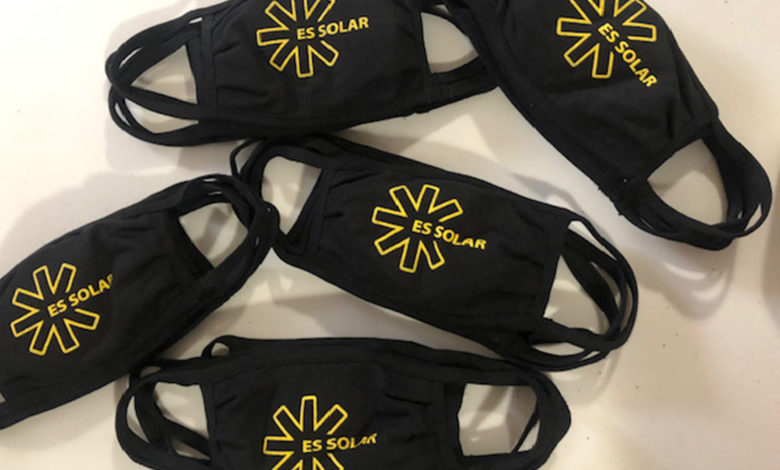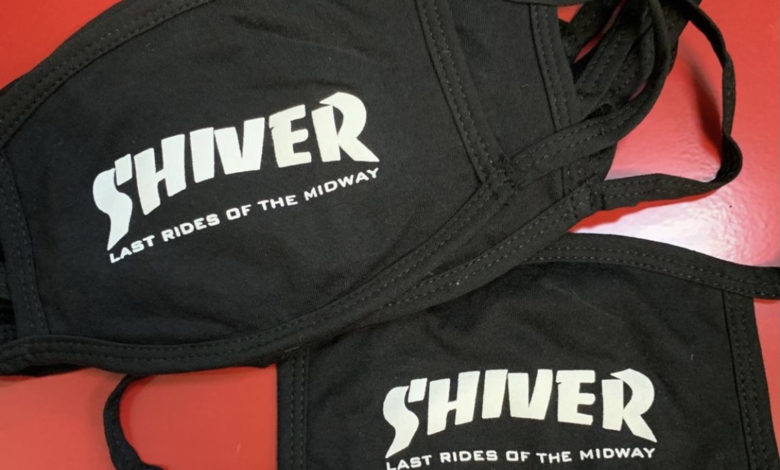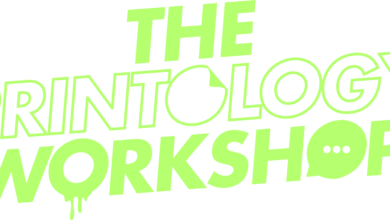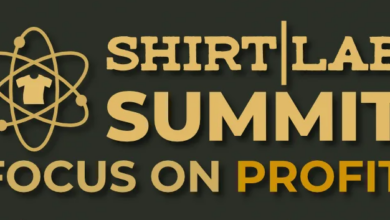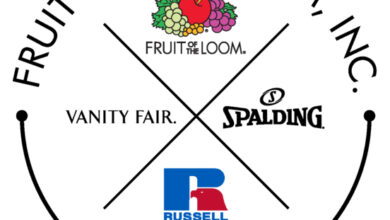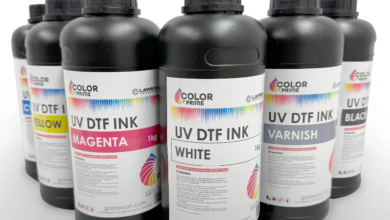COVID-19 Unmasks Business Opportunities for Screen Printers
With the pandemic’s onset, screen printers across the country saw the door to their livelihood closing. Many found new avenues for growth through community involvement and the printing of face masks using a platen built for their manual presses.
Schools and events previously comprised the majority of MI Screen Printing’s customer base. When shutdowns went into effect, the company, located in Mooresville, North Carolina, reached out to small businesses in the area.
“When COVID hit, we were forced to think outside the box and started helping those in need,” says Danielle Gordon. “We had a huge amount of overstock shirts, so we printed ‘Support local businesses’ on the front of the shirts and our logo on the back.”
Gordon and her husband Jason printed approximately 500 one-color shirts on their six-color/four-station press and gave them away to local businesses that in turn gave some to their customers. The couple also set up an online store and raised $1,000 for small businesses in the area.
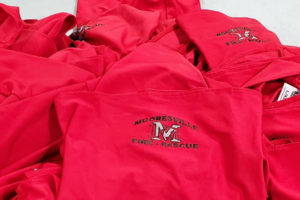
As the city began to reopen, recipients of the free shirts reached out to the shop with T-shirt orders. Soon the Gordons received queries about printing masks.
“We tried five or six test prints on our platens using a lot of adhesive to hold the masks down, but the masks moved around too much,” explains Gordon. “When we got our first order for 1,000 masks from our local school district, we knew we needed to find a better method.”
Mask platen meets a growing demand
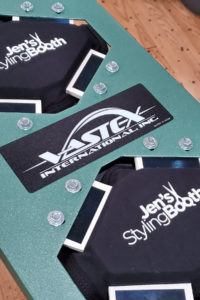
MI Screen Printing purchased a double face mask platen with a quick-stretch design for screen printing on a variety of mask types and styles as well as neck gaiters.
In addition to printing masks for schools and small businesses, the couple received mask orders from the Town of Mooresville for its local fire departments and emergency medical services.
Like MI Screen Printing, Abstract Graphics in Nazareth, Pennslyvania, was hit hard by the pandemic. Owner Art Rader took on smaller jobs and focused on the embroidery side of his business.
“It wasn’t unheard of to take on a job of six pieces,” he says. “Before, our average run size for our contract printing customers was 100 to 1,000 pieces.”
He received his first mask requests from local schools and tried printing them on a pocket platen but found it challenging with the rectangular shape of the masks. He ordered two platens made to print four masks at a time, for a total of 1,000 masks an hour. The masks feature one-color outlines instead of solid prints so as not to restrict breathing. Rader says he’s back up to printing 100 to 1,000 pieces.

As mask mandates went into effect, other screen printing shops followed suit. In Pittsburgh, Scott Bukieda of Second Breakfast Screen Printing ordered a mask platen to fulfill requests from existing customers, namely CrossFit gyms.
“We knew that the environment was changing and masks were going to be the norm, so it was an easy decision to purchase the platen,” he says.
Most of Bukieda’s customers ordered masks with company logos or names. The platen allows him to screen print in the center or on the side of a mask in one or more colors.
“No matter where you put your design or what type of mask material you use, the platen accommodates it, so you get a quality print,” explains Bukieda, who has printed on a variety of mask styles, including those with nose wires.
A pathway to new opportunities
Today, masks are as much a fashion accessory as a necessity. Masks have helped screen printers replace garment orders lost due to the pandemic—but more importantly, they have opened the door to new business. Guillermo Pineda, a printer and designer of clothing brand 2fukdup! in Los Angeles, now sells direct-to-garment printed masks featuring the work of graphic artists through his website.
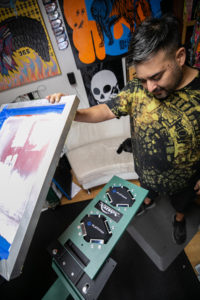
Requests for matching T-shirts and masks have become another opportunity for screen printers. Recently, Pineda printed logos on matching polo shirts and masks for a contract cleaning company that services hospitals.
For several screen printers, like Ian Weston, owner of Rocky Mountain Screen Printing in Ogden, Utah, business is better now than before the pandemic, but it didn’t start that way. Customers canceled print jobs, and new orders waned.
“It was horrendous,” Weston recalls. “Our printing business came to a complete standstill.”
He purchased a mask platen in the hopes of recouping some of his losses. After printing 1,500 masks for the Ogden Mustangs opening game, the hockey team hired him to print all of the apparel and warm-up gear for its youth organization.
Weston also supplied shirts for a hockey tournament to raise funds for the family of a police officer killed in the line of duty. The following week, the City of Ogden hired him to print masks for its police, fire, and city workers.
“Masks allowed us to get our foot in the door and sell to companies we wouldn’t have done business with otherwise,” says Weston. “My goal has always been to print full-time, and that’s more attainable now than ever before.”

